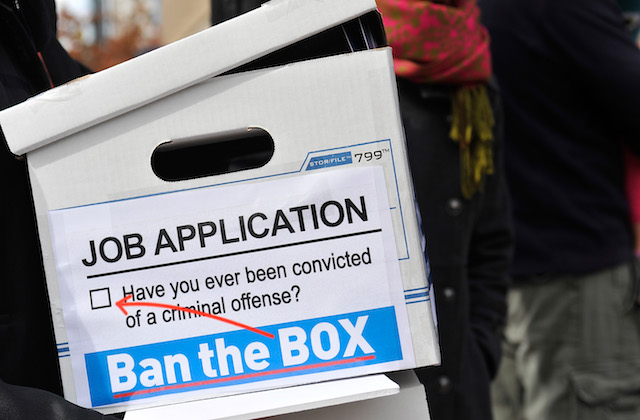More than 150 cities and counties have implemented “ban the box” policies, which prevent employers from asking jobseekers about their criminal history or running background checks until its time to make a job offer. The polices are meant to help more ex-offenders secure sustaining work. But a February 21 report from the Urban Institute says that banning questions about past offenses is having some unintended consequences.
{{image:2}}
For “Ban the Box and Racial Discrimination,” researchers culled recent studies to gain a global picture of the impact of these polices nationwide. They found that while they have increased the likelihood of some people with past convictions being called back for a job, when it comes to young Black and Latinx men (the people who are most disproportionately represented in the criminal justice system) the opposite is true—even when they don’t have a criminal record.
From the report:
These findings suggest that when information about a person’s criminal history is not present, employers may make hiring decisions based on their perception of the likelihood that the applicant has a criminal history. Racism, harmful stereotypes and disparities in contact with the justice system may heavily skew perceptions against young men of color….
Agan and Starr (2016) found that after ban the box implementation in New York City and New Jersey, the disparities in callbacks between black and white applicants jumped from white applicants receiving 7 percent more callbacks than black applicants to 45 percent more. The authors posit that the increased racial disparity is likely because of employers racially discriminating against black applicants who can no longer prove their lack of a criminal record, as well as allowing white applicants with records to benefit from the favored status enjoyed by white job applicants more generally.
While the researchers do not recommend that these policies be abandoned, they do make recommendations aimed at increasing the likelihood of employment for people of color. They include the following, as outlined in an emailed statement:
Improving equal employment legislation and enforcement. Combining ban-the-box polices with improved equal employment laws, regulations and enforcement would help reduce the unintended consequence of ban the box on people of color and, in general, reduce discrimination in hiring.
Providing training for employers and outreach to people with criminal records. This would raise awareness among employers about the potential of ban-the-box policies to increase discrimination against people of color and would assist employers in developing safeguards to prevent that from occurring. It would also help job applicants with criminal records better understand their rights.
Reducing racially identifying information in applications. Requiring job applications to be name and address blind would reduce the ability of employers to identify an applicant’s race based on his or her name or where he or she lives.
Read the full report here.
